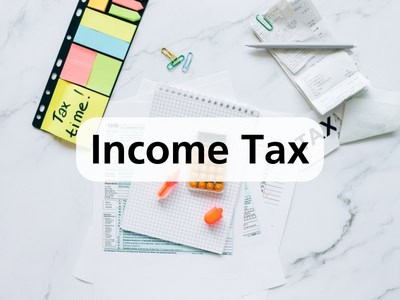Understanding Income Tax
 Income tax is a financial levy imposed by governments on individuals and entities within their jurisdiction based on their earnings or income. It is a fundamental source of revenue for governments worldwide and plays a crucial role in funding public services, infrastructure development, social welfare programs, and various government functions.
Income tax is a financial levy imposed by governments on individuals and entities within their jurisdiction based on their earnings or income. It is a fundamental source of revenue for governments worldwide and plays a crucial role in funding public services, infrastructure development, social welfare programs, and various government functions.
Hong Kong’s attractive income tax system and rates make it a preferred business jurisdiction for many foreign investors. Whether you are an individual or a corporation, understanding the taxation system in Hong Kong is crucial.
Personal Income Tax in Hong Kong
Hong Kong adopts a simple and low personal income tax system unlike many other countries. Individuals are taxed on their net chargeable income at progressive rates, ranging from 2% for the first HKD 40,000 to 17% for income exceeding HKD 120,000. Notably, there is no capital gains tax on individual income, and foreign-sourced income is also tax-free.
Corporate Taxation in Hong Kong
Hong Kong’s corporate tax rate is competitive at 5%. Additionally, there are no taxes on capital gains, shareholder dividends, or foreign-sourced income for companies. This advantageous tax environment has contributed significantly to Hong Kong’s status as a global business hub.
Taxation on Dividends and Interest
Hong Kong does not impose withholding taxes on dividends or interest. This policy fosters a favourable environment for investments and international financial transactions, attracting businesses and investors worldwide.
No Value Added Tax (VAT) or Sales Tax
One of Hong Kong’s tax strengths is its absence of value-added tax and sales tax. This policy simplifies business operations and reduces administrative burdens, making it an appealing destination for entrepreneurs and investors alike.
Double Tax Treaty Network
Hong Kong has a robust network of double tax treaties, with agreements in place with 37 countries. These treaties help prevent double taxation on income earned in multiple jurisdictions, promoting cross-border trade and investment.
Property Tax and Estate Duty
Property tax in Hong Kong is levied on the owners of land and buildings, with a standard rate of 15% on the net assessable value of the property. Importantly, there is no estate duty in Hong Kong, providing relief for individuals and families regarding inheritance and succession planning.
Other Tax-Related Facts
- Hong Kong has no foreign exchange controls, facilitating international trade.
- Royalties and fees paid to non-resident entertainers or sportsmen for their performances in Hong Kong are subject to withholding tax on their assessable profits.
- Hong Kong follows a single-tier tax system, simplifying tax calculations.
- Fixed duties and ad valorem duties apply to specific goods, with no tariff on general imports.
- The Hong Kong Dollar is the 9th most traded currency globally, closely pegged to the US dollar (1USD to 7.8HKD).
- Hong Kong has adopted a Financial Reporting Standards (FRS) framework modelled on International Financial Reporting Standards (IFRS).
- Profits earned during an accounting year ending within the tax year are deemed profits for that tax year.
In summary, Hong Kong’s income tax system, characterised by low rates, no capital gains tax, and a business-friendly environment, continues to attract investors and businesses seeking opportunities in Asia’s financial epicentre. Whether you’re an individual or a corporation, understanding the tax landscape in Hong Kong is essential for successful financial planning and business expansion.


